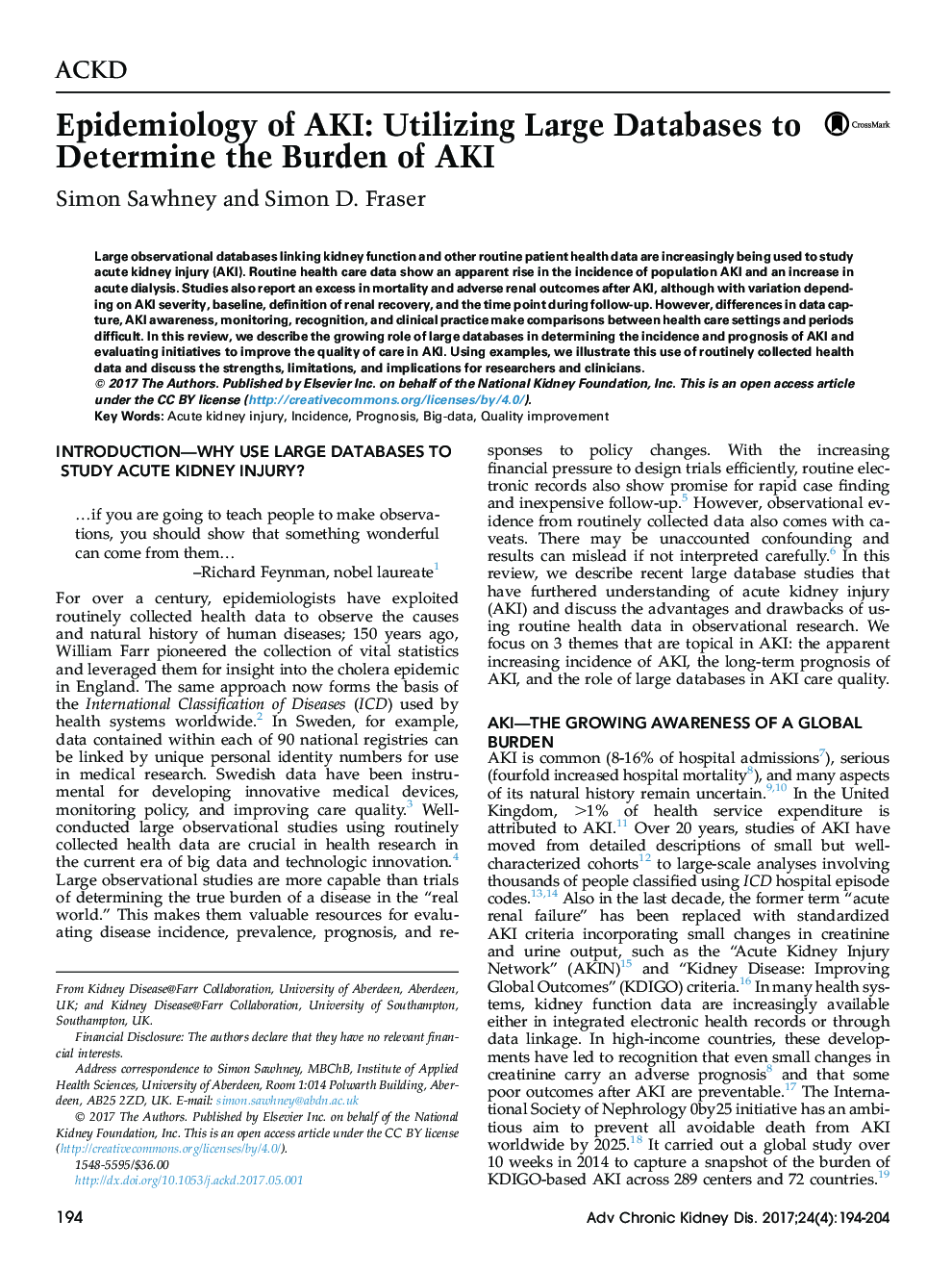| Article ID | Journal | Published Year | Pages | File Type |
|---|---|---|---|---|
| 5685148 | Advances in Chronic Kidney Disease | 2017 | 11 Pages |
Large observational databases linking kidney function and other routine patient health data are increasingly being used to study acute kidney injury (AKI). Routine health care data show an apparent rise in the incidence of population AKI and an increase in acute dialysis. Studies also report an excess in mortality and adverse renal outcomes after AKI, although with variation depending on AKI severity, baseline, definition of renal recovery, and the time point during follow-up. However, differences in data capture, AKI awareness, monitoring, recognition, and clinical practice make comparisons between health care settings and periods difficult. In this review, we describe the growing role of large databases in determining the incidence and prognosis of AKI and evaluating initiatives to improve the quality of care in AKI. Using examples, we illustrate this use of routinely collected health data and discuss the strengths, limitations, and implications for researchers and clinicians.
